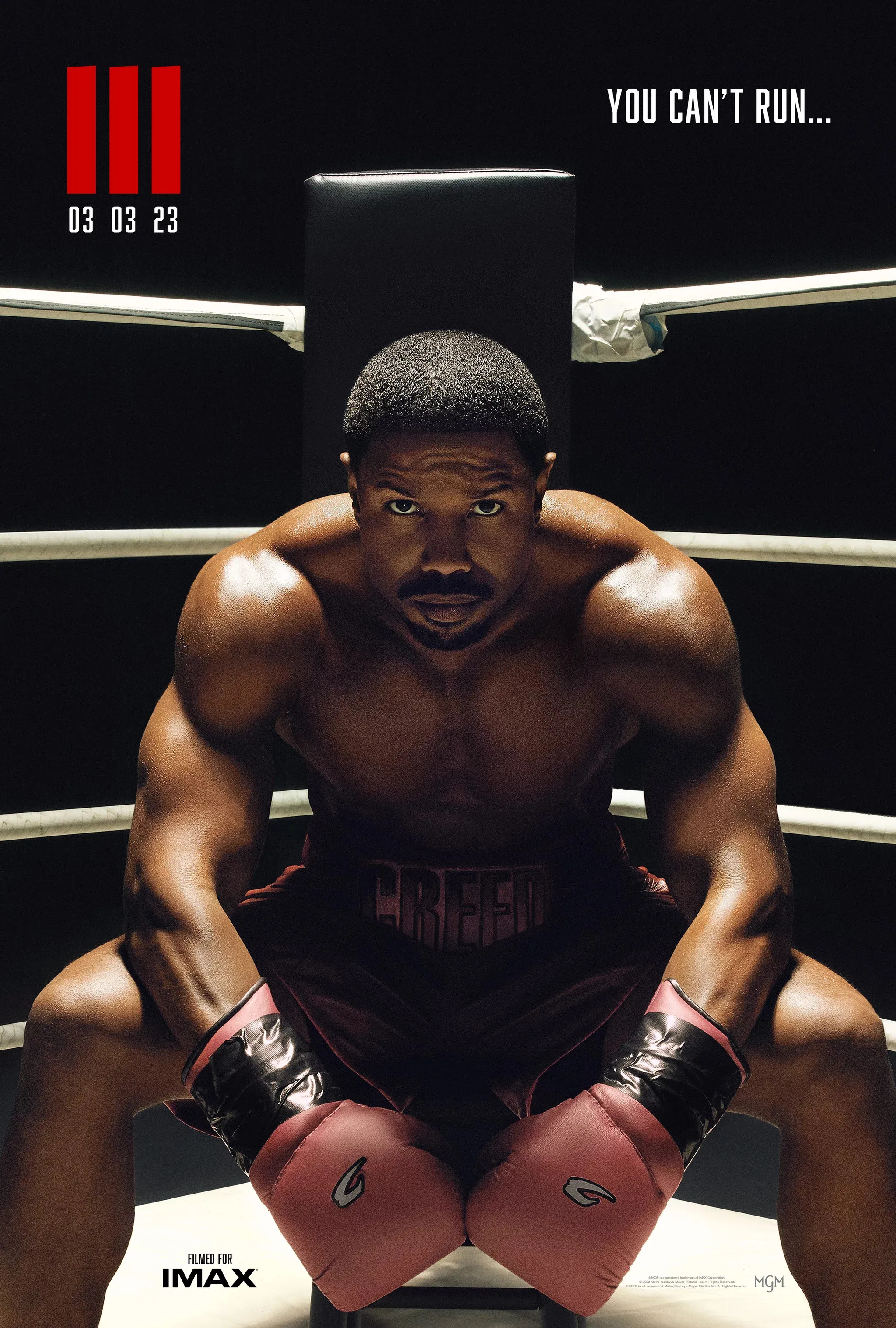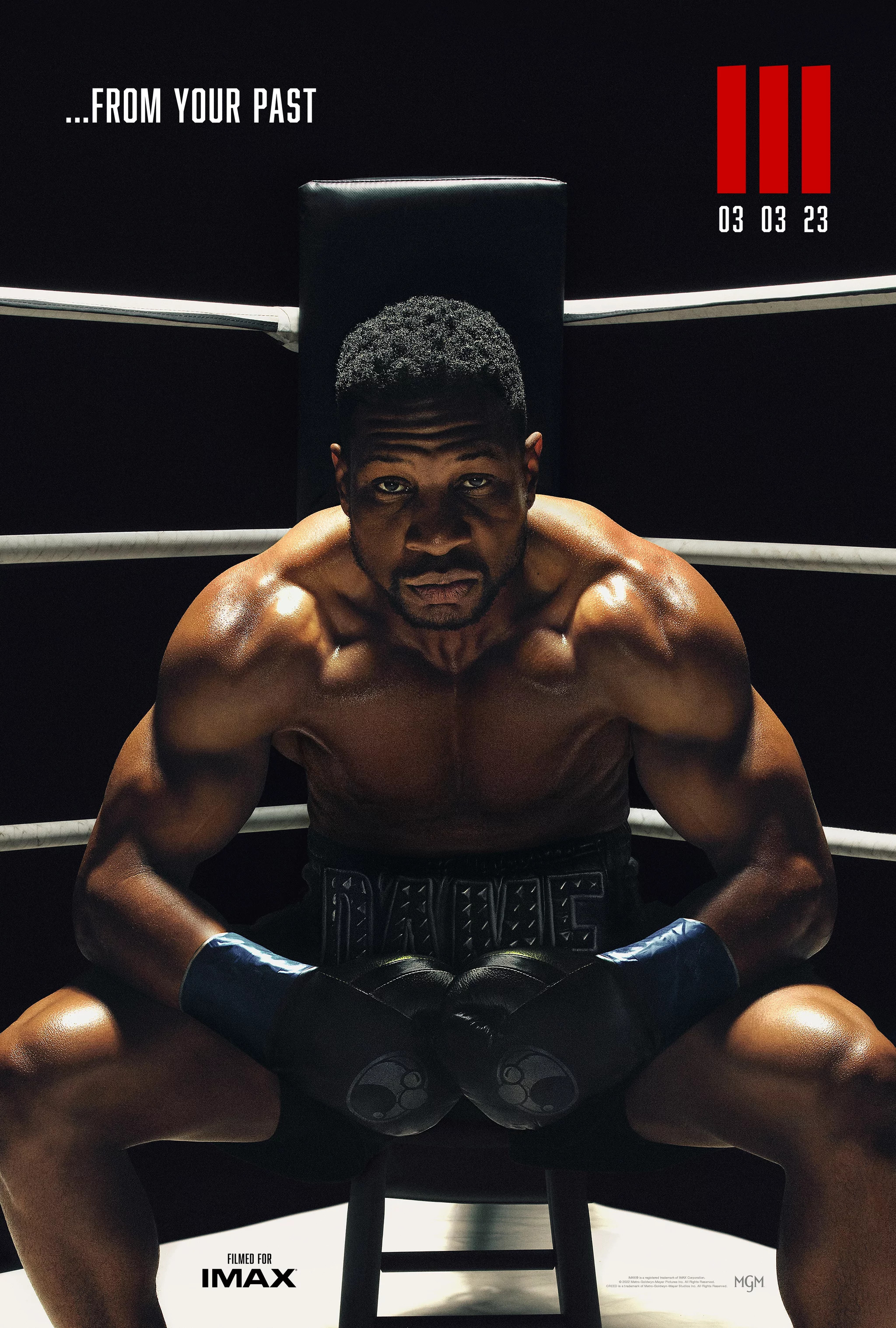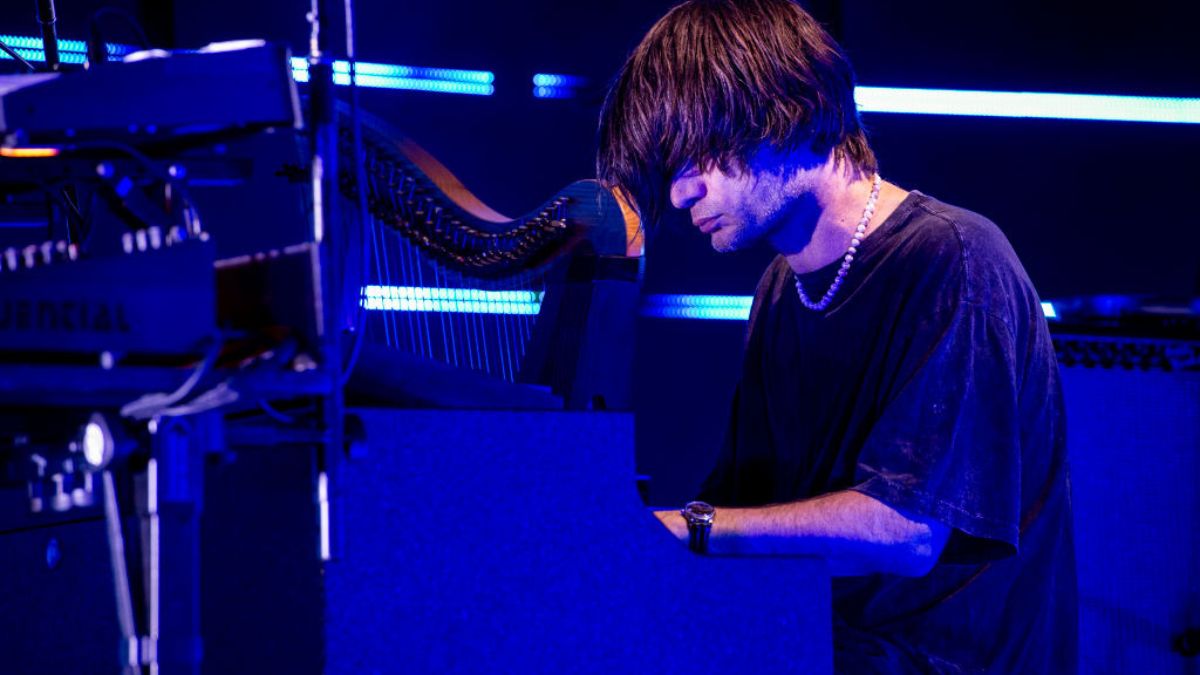The third installment of the Creed series sees Michael B. Jordan step behind the camera for the first time in an environment that’s familiar enough to grant him the confidence needed to take risks, and it couldn’t have worked out better. Creed III is arguably the best of its trilogy, offering a matured and settled world to those who have been following the Rocky spinoffs since the first film came out in 2015, while throwing the audience enough curveballs and revelations to keep them engaged.
Adonis (Jordan) is now retired, confident in his knowledge that he built a career he can be proud of, happily married to Bianca (Tessa Thompson) and having masquerade tea parties with their daughter Amara (Mila Davis-Kent). That is, until the ghost of a past life that Adonis had been trying to forget comes back to haunt him in the form of Jonathan Majors’ volatile former teenage boxing champion Damian, effectively setting the emotional conflict of the film into motion.
With a much more reduced cast than its predecessors, and a bigger focus on internal struggle than physical brawls, Creed III is completely dependable on the chemistry of its core trio – a trust fall relatively easy to carry out when you’ve got Jordan, Thompson and Majors in your corner. It’s clear Jordan knows Adonis inside out by now, while Keenan Coogler and Zach Baylin’s script gives him enough agency and space to explore depths unknown in the character both as an actor and as a director.
The insane chemistry between Jordan and Thompson – which has always been the heart of the series – is more grounded than ever, present in silent stares and domestic stages. When the two come together, it’s hard to believe the love you’re witnessing isn’t, in fact, flesh-and-bones, heart-on-sleeve real. Creed lucked out on its casting, because that type of onscreen partnership only comes by once in a while.
To be fair, Bianca, much like in Creed and Creed II before it, never really expands beyond a really good, solid, supportive presence for the protagonist. Still, there’s an honest effort to give her some of her own personal conflict, to which Thompson grabs onto, tooth and nail. As Adonis struggles to come to terms with a recent development that is putting the entire life he built in jeopardy, Bianca is also trying to find the positives in the dismaying career turn imposed on her by her progressive hearing loss.
The entire Creed family is a joy to watch, with the highlight being the amount of respect lent to the portrayal of Amara’s hearing impairment, as well as her smooth inclusion in the narrative as her dad’s biggest fan. Her storyline revolves around her wanting to follow in his footsteps, allowing Adonis to make clear that boxing isn’t about violence but precision and focus – a small comment that, in turn, shifts the audience’s perception of every fight sequence to come.
The small moments Thompson shares with Phylicia Rashad as Adonis’ adoptive mother Mary Anne Creed positively come alive despite their reduced screen time, and the two make you believe every word when Bianca says Mary Anne was the closest thing she had to a mother.
Every time Majors and Thompson get to act off one another – regardless of Jordan’s presence – is also a pleasant surprise. The way the former manages to hold on to his character’s secrets for the longest possible time makes you cling onto his every expression, searching for answers you know will not be revealed until much later on. You fear Dame’s presence might destroy a lot more than just Adonis’ boxing career every time he hones in on Bianca – that the family unit this franchise has so graciously built over the course of three films might actually be in real danger. Yet, he never takes any step that’s too predictable, which somehow makes him even scarier.
Majors has perfected a balance between alluring and threatening that is very particular to his craft. Granted, his two latest major roles have been antagonists, but it’s obvious the Quantumania actor has mastered the art of making you root for the villain. Here, he imbues Dame with a kind of humanity with which it is impossible not to sympathize. Sure, the smart choice to make Creed III a story of childhood friends turned rivals helps with building a believable, complex character, but any other actor could have fallen in a number of the traps such a common-place formula sets up. Majors keeps it interesting by building a facade that is so hard to read, while always leaving just a speck of a wounded soul peaking out from underneath, that persuades you to keep watching to find out more.
As director, Jordan understands his characters, their motivations, and their stories. He knows the effect a foiled brotherhood can have on a man’s particular sense of pride. His directing is entirely reflective of this comprehension, and one only needs to listen to him speak on why he loves the animes which served as inspiration for his work to realize this. The result is a surprisingly sensitive portrayal of two men’s complicated emotional bond, which just so happens to only be solvable on the ring. The boxing is not the main character here, but actually a vehicle the protagonists find to express grievances and trauma so tangled they can’t properly be translated into words.
The climax of the film is a boxing sequence that is essentially a stand-in for an emotional confrontation, elevated by Jordan with a style that’s both impressionistic and surrealistic. It’s an exterior depiction of a fight that is as psychological as it is physical for Adonis and Damian, and which, despite almost entirely borrowed from Jordan’s favorite anime series, is no less gutsy to apply on a directorial debut.
Jordan’s clear vision for Creed III is hindered by a couple of melodramatic crutches that are typical of the genre, and constant, incredibly distracting and tacky product placements throughout. Small faults in what is otherwise a self-assured, confident, and refreshingly vulnerable sports epic. The actor and filmmaker is dead serious about his craft, and it’s great to watch.













Published: Mar 3, 2023 12:04 pm